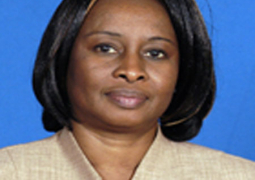Establishing robust monitoring systems to quickly identify and manage adverse events and to demonstrate the safety of SP+AQ is crucial for the long term involvement of all actors involved in the implementation of ACCESS-SMC: communities, governments, donors, and manufacturers.
Since the official launch of ACCESS-SMC in 2014, participating countries (Burkina Faso, Chad, Guinea, Mali, Niger, Nigeria, The Gambia) have come a long way, navigating many micro-planning sessions, learning from past experiences and building sustainable systems to ensure a future for SMC in the Sahel.
Under the lead of The London School of Hygiene and Tropical Medicine , and as part of many related interventions planned under the ACCESS-SMC project, a workshop to train country representatives in SMC pharmacovigilance and discuss national drug safety monitoring was held in Rabat from 18th - 21st May 2015.
Pharmacovigilance representatives from National Malaria Control Programs and senior pharmacists from all ACCESS-SMC implementing countries, along with project country team members, gathered in the WHO Collaborating Centre for Pharmacovigilance and benefitted from staff experience, directed by Professor Rachida Soulaymani.
Participants were able to share knowledge and experience and appreciated the opportunity to strengthen collaboration between country experts, as well as between malaria control programs and pharmacists within each country.
Using SMC pharmacovigilance as an entry point, ACCESS-SMC seeks to have a lasting impact on national pharmacovigilance systems and generally improve drug safety monitoring in all implementing countries. As the first round of SMC distributions come to an end in several participating countries, feedback and lessons learned from this first large scale round of distribution will be gathered and used to further strengthen SMC pharmacovigilance.
Guest Editorial
“The malaria parasite has been killing children and sapping the strength of whole populations for tens of thousands of years. It is impossible to calculate the harm malaria has done to the world.”
Bill Gates


